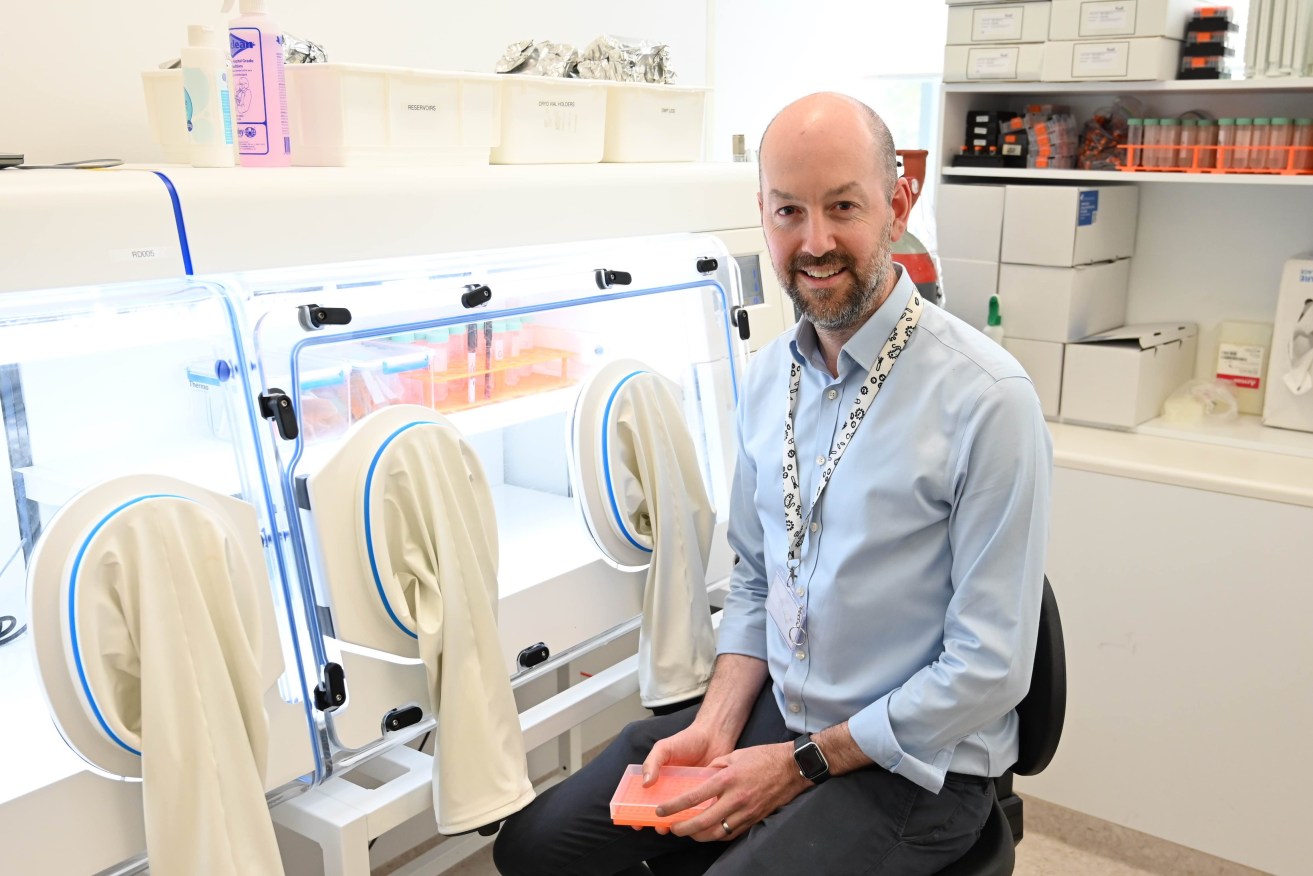Poo bank founders win first global approval for microbiome drug
An innovative Adelaide company with ground-breaking research using faecal implants to tackle bowel health problems has won the first regulatory approval in the world for a microbiome-based therapy using donors.


Dr Sam Costello from BiomeBank in Adelaide. Photo: Belinda Willis/InDaily
BiomeBank is now scaling up its manufacturing facility and discussing new export plans after Dr Sam Costello and Dr Rob Bryant founded the unique approach to tackle gut health and heal potentially fatal bowel infections.
The recently announced Therapuetic Goods Administration approval is specifically for one potentially life-saving BiomeBank product that restores gut microbiota to treat recurrent C. difficile infection.
This is the most common cause of health-care-linked diarrhoea and it can lead to death or bowel removal.
Co-founder and managing director of Biomebank, Dr Costello, said the approval is an important milestone for the pioneering business that now employs 20 people “and an important advance for microbiome therapeutics globally”.
“Our product is made from human faeces from donors and processed into a product,” he said, adding the company must adhere to strict rules about donor screening and manufacture.
It has been used in hospital trials around Australia with positive results for the past two years and news of this next level approval gives the business a boost in its current plans to move into the North Terrace biomedical precinct.
Dr Costello said the product tackles the infection that causes patient ill health as bacteria can be overgrown in the bowel following antibiotics use.
“It’s the most common cause of healthcare-associated diarrhoea and it can be very severe in some cases with people losing some of their bowel and there can be deaths,” he said.
BiomeBank’s purpose-built stool laboratory opened in 2020 to help take South Australia’s pioneering fight against debilitating gut conditions global.
It was started to store donated healthy stools used to help patients fighting inflammatory bowel conditions, by using a procedure called faecal microbiota transplantation.
“We are thrilled to achieve market authorisation and intend to scale manufacturing of our donor derived microbiome drug product to meet the immediate medical need,” Dr Costello said.
“In addition, we are excited to progress the development of our cultured microbiome-based therapies with the aim of alleviating microbiome mediated disease on a much larger scale.
“It’s an exciting time for the microbiome field and we are pleased to be pioneering new solutions to treat these diseases.”
The news comes as joint founder and gastroenterologist Associate Professor Bryant was last week awarded a $1.8 million five-year Michell-McGrath fellowship to continue advancing treatments in inflammatory bowel disease.
He also oversees work at the Basil Hetzel Institute for Translational Health Research that is used clinically at the Queen Elizabeth Hospital.
BiomeBank was first established in 2013 and is the first public stool bank in Australia to treat chronic bowel disorders including Ulcerative Colitis, an Bottom of Forminflammatory bowel disease with symptoms such as diarrhoea, abdominal pain and bleeding.
“Inflammatory bowel conditions are debilitating and ongoing for patients, with high rates of surgery, hospitalisation, poor quality of life and disability,” Associate Professor Bryant said.
“Studies have shown a progressive loss of people’s gut microbial diversity in developed countries like Australia, often attributed to Western diets. These changes have been linked to increased rates of many diseases, including IBD.
“Microbial manipulation represents a new treatment paradigm that has the potential to bridge the therapeutic gap in IBD, using faecal microbiota transplantation and prescribed dietary strategies.”




